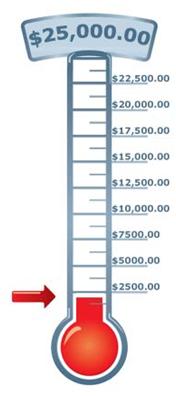At the very end of last month, in an effort to bolster sales to “make the quarter,” both Clear Channel and CBS ran major pushes to “hit the numbers.” One-day sales blitzes, higher commission rates, and other incentives and games were apparently attempted in an effort to squeeze out as many dollars as possible during Q2.
This happens in every business – auto dealerships are always more willing to negotiate at the end of the month (or a quarter). And we all have the sense that the local boys (and girls) in blue seem to be more present on the roads, writing as many traffic citations as possible as the month draws to a close.
 But where’s radio programming in all of this? Sure, spot loads were probably relaxed or even put on hold at many stations and companies during that end of quarter rush to make sales goals. But that’s not the kind of contribution that really matters from the PD’s office.
But where’s radio programming in all of this? Sure, spot loads were probably relaxed or even put on hold at many stations and companies during that end of quarter rush to make sales goals. But that’s not the kind of contribution that really matters from the PD’s office.
If ratings are all that programming delivers, then something important is missing from the equation. While it is essential for shares and average ratings to be as strong as possible for every competitive station’s sales force, PDs need to be providing more to their operations – ideas, innovations, features, and even new revenue generators that are win-wins for both programming and sales.
This may be one of those psychological advantages of sales goals. While sometimes unrealistic and always hokey, those thermometers hanging around the office, and Q1 sales trips to the Bahamas, provide incentives to an already hungry group of sales carnivores.
Why wouldn’t similar techniques help inspire programmers to come up with that quarterly idea that could move the needle – ratings, sales, brand-building – or all of these? A few weeks back, we talked about Greater Media Philadelphia’s innovation contest. At many clusters in markets big and small, there’s no reason why programming staffs couldn’t be similarly motivated to dream up – and try – different concepts that would build brands, while adding ratings and eventual sales.
At a time when growth is flattish – or even up a few points here and there – it is essential for the radio industry to be proactive – and not just play defense. Why not better motivate some of the true talent that roams the halls in every radio cluster in North America as creative idea generators? Now some may say that’s what PDs are paid to do. But I would counter that the same could be said of sales – and yet it has always been acceptable to incentivize them.
As everyone in sales knows, if you don’t ask, you don’t get.
That’s true for clients you’re pitching, your salespeople, and it’s also true of PDs…and consultants.
Where are the next big ideas going to come from?
Where are the great DJs of the future?
Where are the innovative formats that will replace those that have run their course?
What could we do with that fourth station in the cluster that always lags beyhind?
It’s time for a quarterly content contest.
- What To Do If Your Radio Station Goes Through A Midlife Crisis - April 25, 2025
- A 2020 Lesson?It Could All Be Gone In A Flash - April 24, 2025
- How AI Can Give Radio Personalities More…PERSONALITY - April 23, 2025




Considering where radio “is” (or isn’t) today in terms of a very different media landscape, any “PD” who isn’t embracing and being a brand and content director, is in the wrong job. It’s a win-win+ when as a Brand & Content Director you are as much centered in Sales, Marketing and Promotion solutions; and all they can be for the business. If it’s worth putting on-air, on-stream, on-demand etc,it’s worth engaging those areas and really building out smart and compelling relationships for listeners, customers, and brands/products. I’ve always found that the closer a Brand & Content Director gets to those areas, the more interesting the entire proposition becomes, inside the building; with the teams and talent; and in what goes out. Every day is a “brand” and “content” day.
You are right – and I love the line – “every day is a brand and content day.” This is far cry when programming, sales, and promotions were three different silos who did they best not to talk to each other. We’ve learned that great brands are built when departments and managers find better ways to partner and work together. Thanks for adding that perspective to this conversation, Lee.